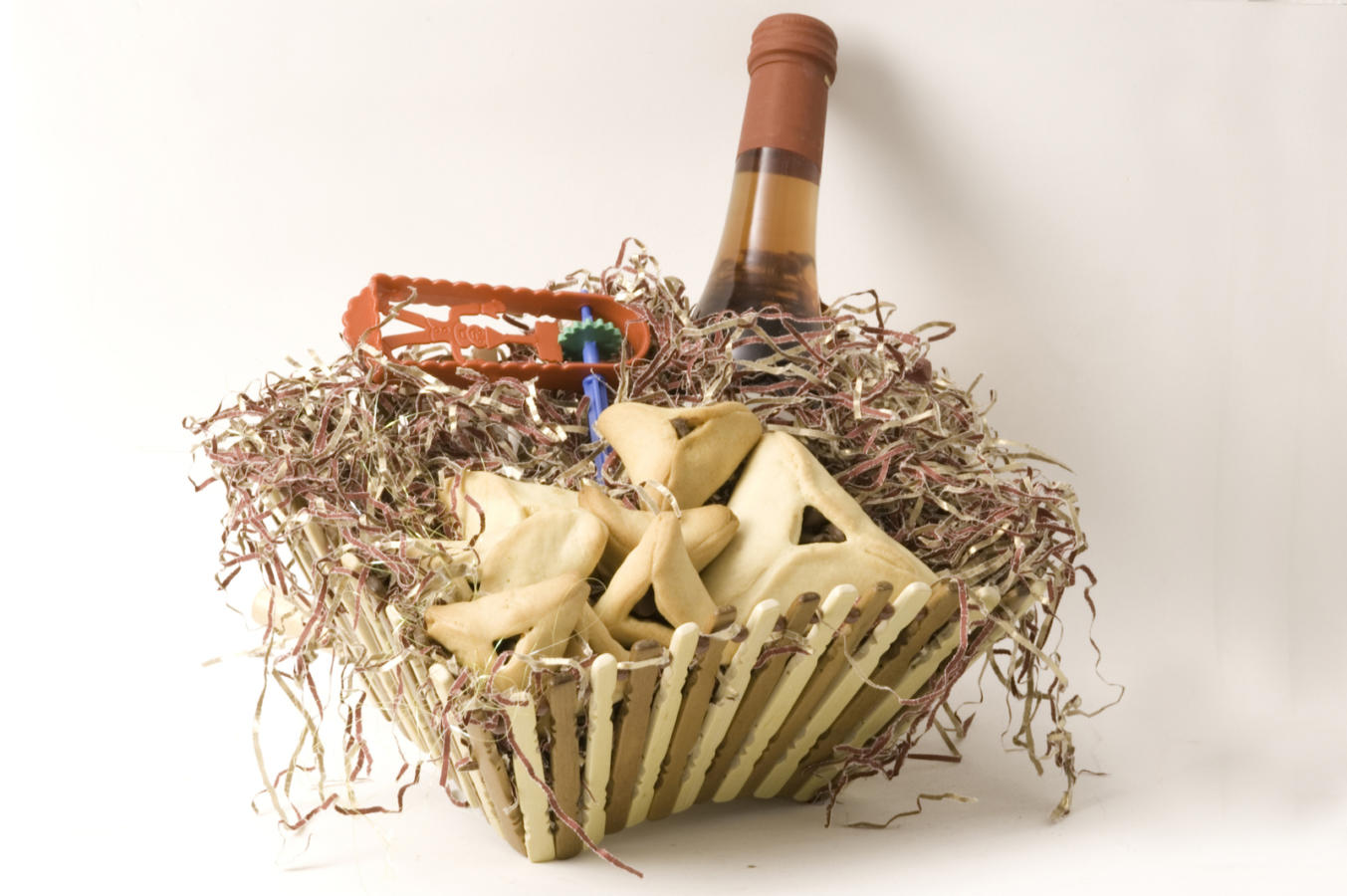Question: I know I’m supposed to give gift packages on Purim. Are there any rules about what has to be in them? How many should I give?
–Claire, Bergen County
Answer: In my opinion, Claire, giving gifts is the best part of Purim. It’s so much fun to make up little packets of goodies for my favorite people, and of course I love receiving these packets, too.
The commandment of mishloach manot, giving gifts on Purim, comes from a verse in the Book of Esther after the Jewish people have been saved from annihilation, “They were to observe them as days of feasting and merrymaking, and as an occasion for sending gifts to one another and presents to the poor” (Esther 9:22). This is a relatively simple verse, but traditional rabbinic authorities have extrapolated a number of rules about what constitutes a Purim gift.
According to the Shulchan Aruch, each person is obligated to send to at least one other person, and each gift should be comprised of at least two different elements. Some people have the custom of making sure the contents of their mishloach manot require two different blessings (say, a cookie and a piece of fruit) but this is not a halachic (Jewish legal) obligation. The foods that are contained in a Purim gift should be ready-to-eat, such as cured fish, cooked meat, baked goods, fruits, wines, or other beverages. Ideally, one should not give something that requires preparation (Oreh Haim 695:4).
With your help, My Jewish Learning can provide endless opportunities for learning, connection and discovery.
Many synagogues organize fundraisers around mishloach manot. Basically, you can pay a fee, and your money goes toward a package that goes to each family. In theory, this allows everyone to fulfill the mitzvah much more efficiently, and if the synagogue charges an overhead, it can make money, too. However, this does pose some halakhic difficulties. I asked Rabbi Steven Exler, the associate rabbi of the Hebrew Institute of Riverdale, to explain some of the concerns one might have with this practice. He noted that it’s important to ensure that your money is going toward mishloach manot and not the fundraiser. However, he said, “I think we tend to be lenient here, and as long as a normal calculation shows that your expense can be linked to the costs of the actual food procurement for two minimal food items for one family … you’re fine.”
Another concern is making sure that the mishloach manot are delivered on Purim day. The mitzvah is timely, and therefore, one cannot fulfill the commandment by giving mishloach manot earlier or later than the day or Purim. Rabbi Exler said, “Depending whether you think the mitzvah is fulfilled by the sending or the receiving, arguably you could say you send your money before Purim and it is not fulfilled.” To be absolutely certain that you’re fulfilling the mitzvah, Exler suggests making one personal mishloach manot in addition to the one you contribute to via your synagogue.
Messages and messengers are a big part of the Book of Esther, and the verse about mishloach manot even stipulates that we should send gifts to one another, not just give gifts to one another. As a result, it’s better to send your packets of goodies to a friend via a messenger, than to just give them outright. Anyone can act as a go-between, so feel free to recruit the postal service or even that nice guy in the elevator to help you deliver your gifts.
Another big part of celebrating Purim is giving money to those who are less fortunate. In fact, it’s better to give more money to the needy than to give more people mishloach manot (Kitzur Shulchan Aruch 141:1-2), so if you have to choose between the two, err on the side of charity.
I know it seems like these are a lot of rules for a little gift package, but I promise it’s worth it. You know what they say about presents, right? ‘Tis better to give than to receive. (But receiving’s pretty great, too.)
mishloach manot
Pronounced: meesh-LOE-akh mah-NOTE, Origin: Hebrew, literally “sending portions to one another.” A phrase taken from the Megillah [Book of Esther] that commands the Jewish community to give small packages of food or gifts to friends on the day of Purim.
mitzvah
Pronounced: MITZ-vuh or meetz-VAH, Origin: Hebrew, commandment, also used to mean good deed.
Purim
Pronounced: PUR-im, the Feast of Lots, Origin: Hebrew, a joyous holiday that recounts the saving of the Jews from a threatened massacre during the Persian period.
halachic
Pronounced: huh-LAKH-ic, Origin: Hebrew, according to Jewish law, complying with Jewish law.



